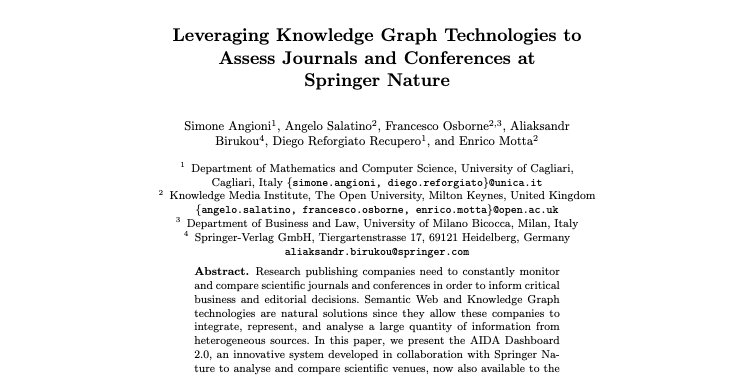“Leveraging Knowledge Graph Technologies to Assess Journals and Conferences at Springer Nature” is an In-Use paper presented at the 21st International Semantic Web Conference (ISWC 2022). Simone Angioni1, Angelo Antonio Salatino2, Francesco Osborne2,3,AliaksandrBirukou4, Diego Reforgiato Recupero1, Enrico Motta2 1 Department of Mathematics and Computer Science, University of Cagliari (Italy) 2 Knowledge Media Institute, The Open […]
Tag: Knowledge Graph
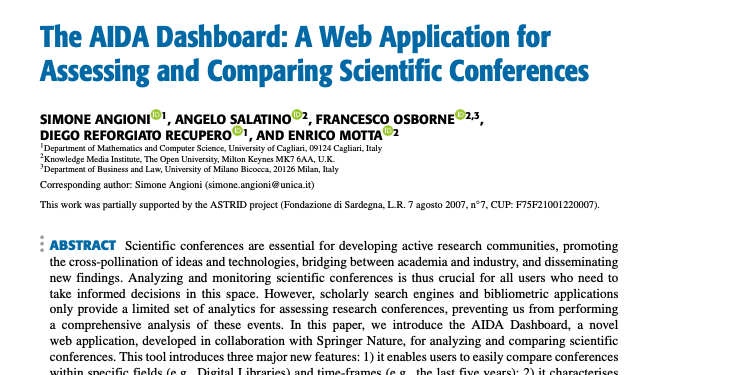
The AIDA Dashboard: a Web Application for Assessing and Comparing Scientific Conferences
“The AIDA Dashboard: a Web Application for Assessing and Comparing Scientific Conferences” is a research paper submitted to IEEE Access. Simone Angioni1, Angelo Antonio Salatino2, Francesco Osborne2, Diego Reforgiato Recupero1, Enrico Motta2 1 Department of Mathematics and Computer Science, University of Cagliari (Italy) 2 Knowledge Media Institute, The Open University, Milton Keynes (UK) Abstract […]

AIDA: a Knowledge Graph about Research Dynamics in Academia and Industry
“AIDA: a Knowledge Graph about Research Dynamics in Academia and Industry” is a research paper published at the Special Issue on “Scientific Knowledge Graphs and Research Impact Assessment” at Quantitative Science Studies (QSS by MIT Press). Simone Angioni1, Angelo Antonio Salatino2, Francesco Osborne2, Diego Reforgiato Recupero1, Enrico Motta2 1 Department of Mathematics and Computer Science, University […]
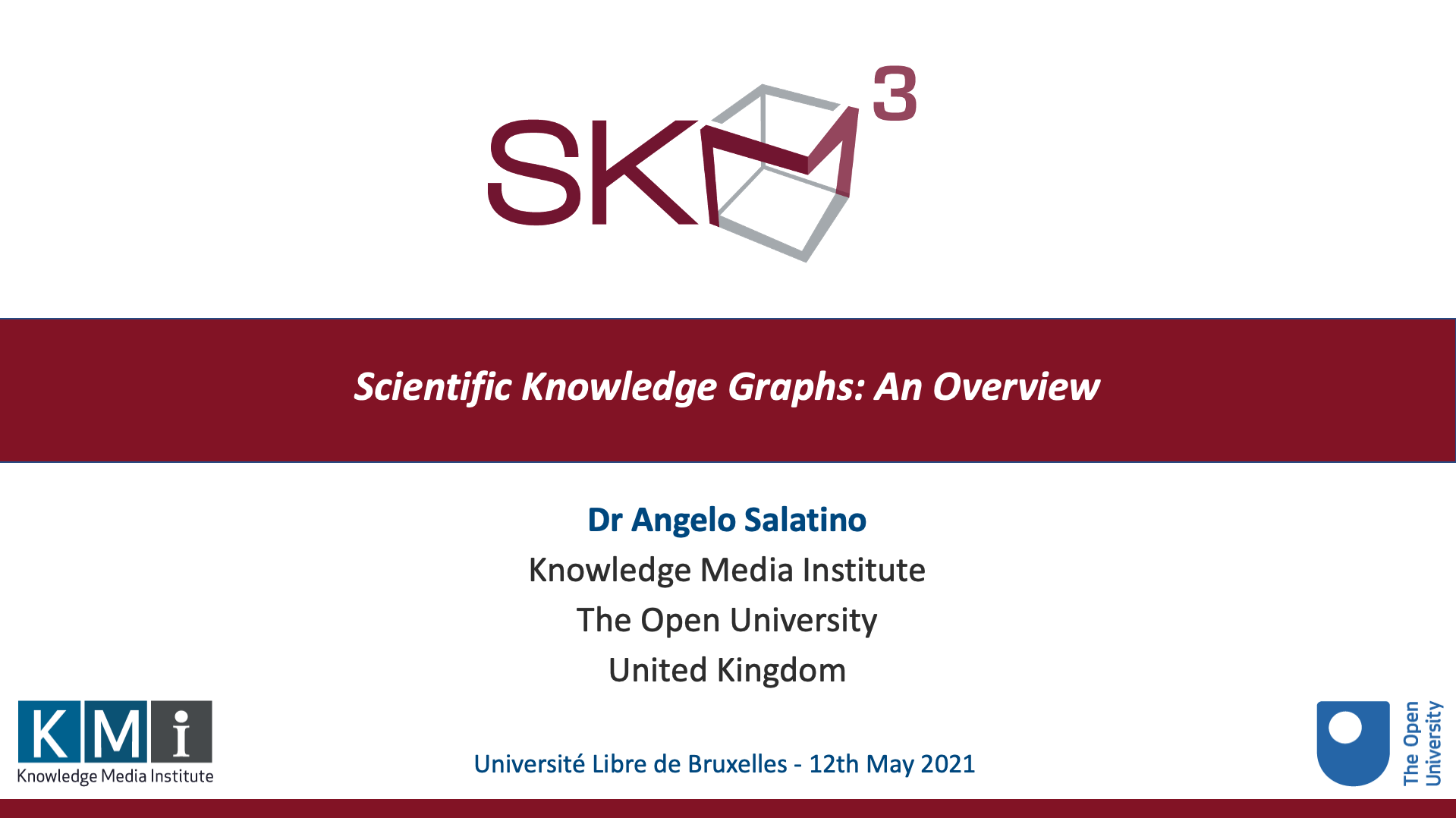
Scientific Knowledge Graphs: an Overview
On 12th May 2021, I have been invited by Dimitris Sacharidis to give a lecture to the master course is INFO-H509 “XML and Web Technologies” at the Université Libre de Bruxelles. Abstract In the last decade, several Scientific Knowledge Graphs (SKG) were released, representing scientific knowledge in a structured, interlinked, and semantically rich manner. But, what […]

ResearchFlow: Understanding the Knowledge Flow between Academia and Industry
“ResearchFlow: Understanding the Knowledge Flow between Academia and Industry” is a conference paper submitted to Knowledge Engineering and Knowledge Management – 22nd International Conference, EKAW 2020. Angelo Salatino, Francesco Osborne, Enrico Motta Abstract Understanding, monitoring, and predicting the flow of knowledge between academia and industry is of critical importance for a variety of stakeholders, including governments, funding […]
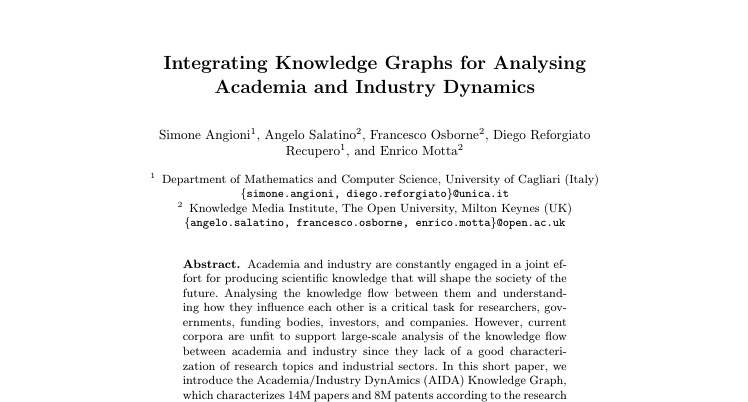
Integrating Knowledge Graphs for Analysing Academia and Industry Dynamics
Academia and industry are constantly engaged in a joint effort for producing scientific knowledge that will shape the society of the future. Analysing the knowledge flow between them and understanding how they influence each other is a critical task for researchers, governments, funding bodies, investors, and companies. However, current corpora are unfit to support large-scale analysis of the knowledge flow between academia and industry since they lack of a good characterization of research topics and industrial sectors. In this short paper, we introduce the Academia/Industry DynAmics (AIDA) Knowledge Graph, which characterizes 14M papers and 8M patents according to the research topics drawn from the Computer Science Ontology. 4M papers and 5M patents are also classified according to the type of the author’s affiliations (academy, industry, or collaborative) and 66 industrial sectors (e.g., automotive, financial, energy, electronics) obtained from DBpedia. AIDA was generated by an automatic pipeline that integrates several knowledge graphs and bibliographic corpora, including Microsoft Academic Graph, Dimensions, English DBpedia, the Computer Science Ontology, and the Global Research Identifier Database.

Academia/Industry DynAmics (AIDA) Knowledge Graph
Academia and industry share a complex, multifaceted, and symbiotic relationship. Analysing the knowledge flow between them, understanding which directions have the biggest potential, and discovering the best strategies to harmonise their efforts is a critical task for several stakeholders. While research publications and patents are an ideal media to analyse this space, current datasets of […]
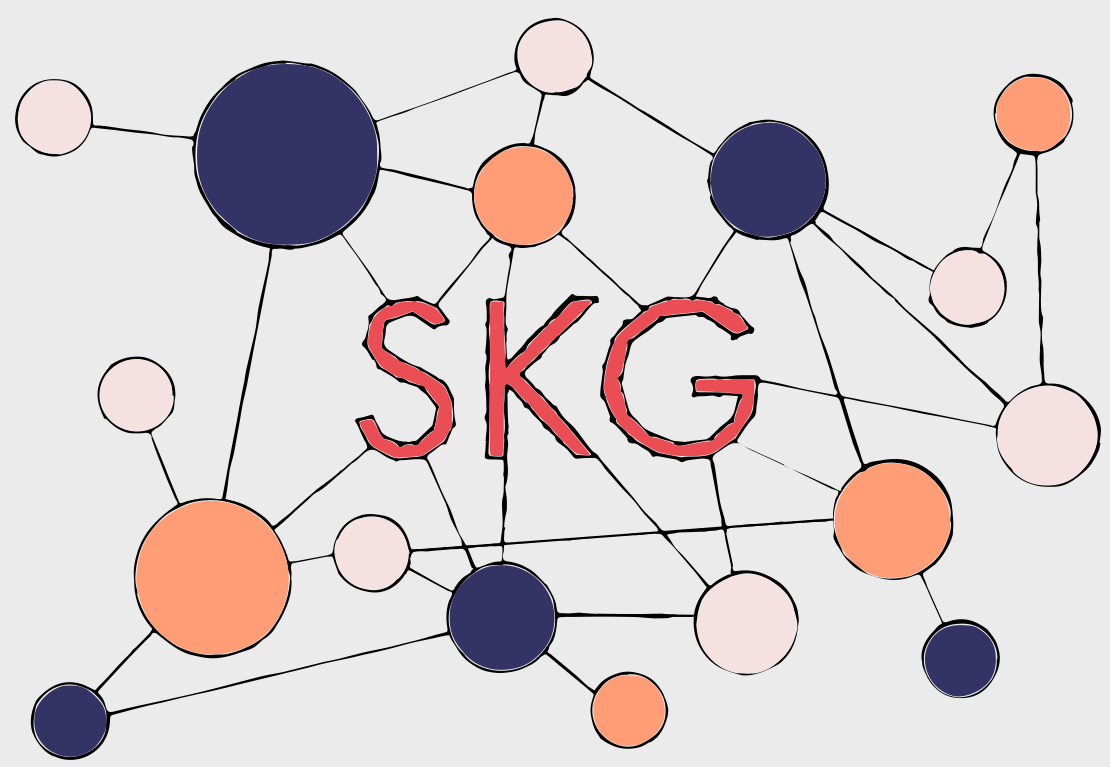
1st Workshop on Scientific Knowledge Graphs (SKG2020)
In the last decade, we experienced an urgent need for a flexible, context-sensitive, fine-grained, and machine-actionable representation of scholarly knowledge and corresponding infrastructures for knowledge curation, publishing and processing. Such technical infrastructures are becoming increasingly popular in representing scholarly knowledge as structured, interlinked, and semantically rich Scholarly Knowledge Graphs (SKG).
The 1st Workshop on Scientific Knowledge Graphs (SKG2020) aims at bringing together researchers and practitioners from different fields (including, but not limited to, Digital Libraries, Information Extraction, Machine Learning, Semantic Web, Knowledge Engineering, Natural Language Processing, Scholarly Communication, and Bibliometrics) in order to explore innovative solutions and ideas for the production and consumption of Scientific Knowledge Graphs (SKGs).
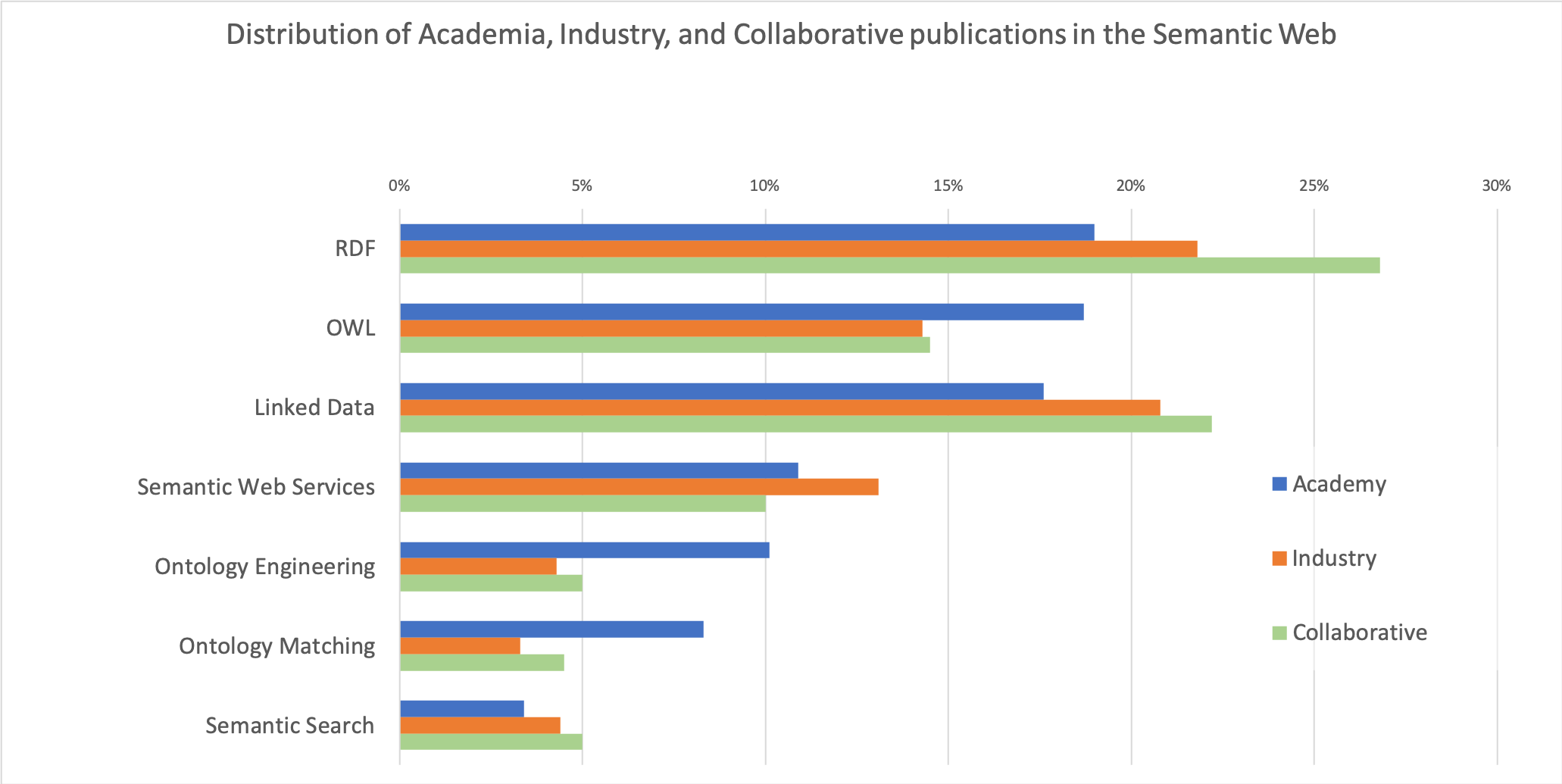
Integrating Knowledge Graphs for Comparing the Scientific Output of Academia and Industry
Analysing the relationship between academia and industry allows us to understand how the knowledge produced by the universities is being adopted and enriched by the industrial sector, and ultimately affects society through the release of relevant products and services. In this paper, we present a preliminary approach to assess and compare the research outputs of academia and industry. This solution integrates data from several knowledge graphs describing scientific articles (Microsoft Academics Graph), research topics (Computer Science Ontology), organizations (Global Research Identifier Database), and types of industry (DBpedia). We focus on the Semantic Web as exemplary field and report several insights regarding the different behaviours of academia and industry, and the types of industries most active in this field.
